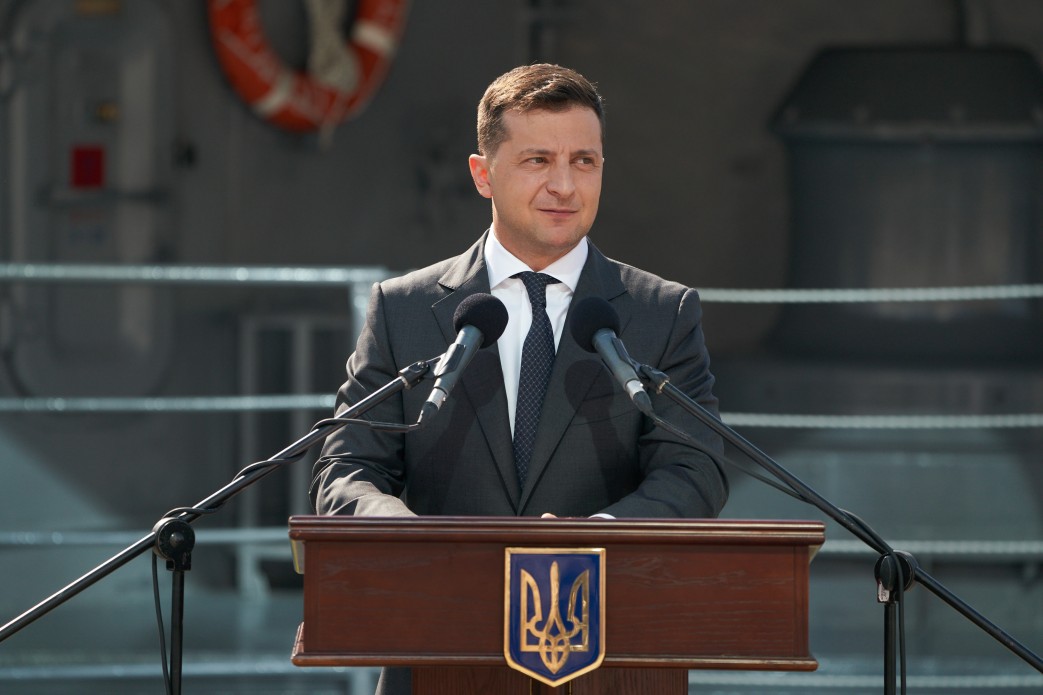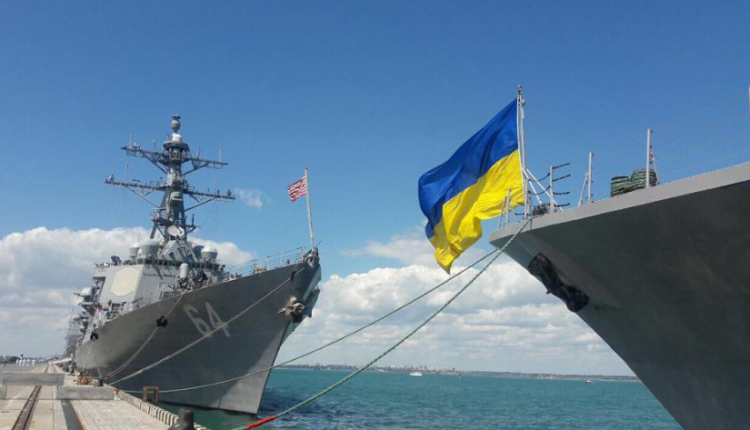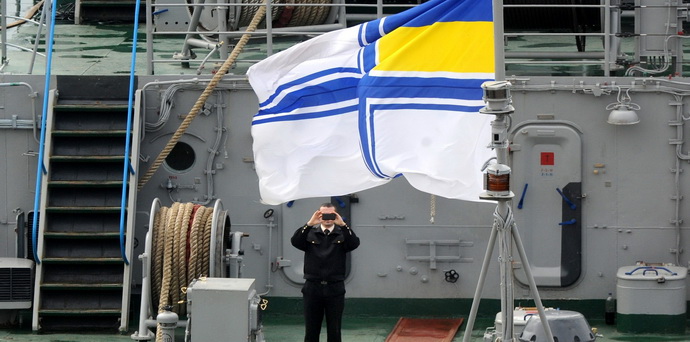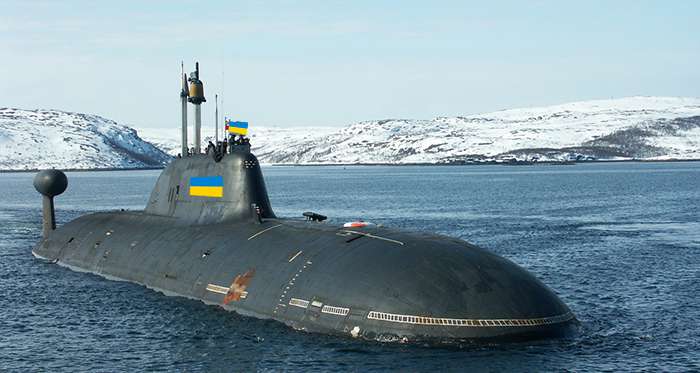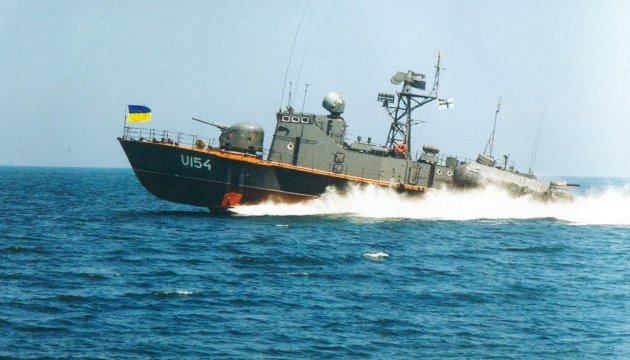Zelenskyy's Big Fleet: can Ukraine build it, and what will we do with it?
Rubryka looked at how much Ukraine needs large warships and submarines and whether we have money to build them.

"We're all convinced that 'the stronghold of our statehood on the Crimean southern border, the Ukrainian Black Sea Fleet, will provide a vigorous defense."
The March of the Navy of Ukraine begins with these words. And with the same words, President Volodymyr Zelenskyy concluded his speech in Odesa during the celebrations for the Day of the Navy. He also stated that Ukraine "will not allow the restriction of freedom of navigation in the Black Sea and the usurpation of its sovereign right as a maritime, coastal state."
On the eve of Independence Day, during an interview with Ukrainian journalists, the president announced his intention to build "a professional, powerful fleet capable of repelling anyone" by 2035.
"We can't wait 20 years until we have the infrastructure for full-fledged shipbuilding, so we'll start building a fleet, including in other countries. Meanwhile, we're building infrastructure in Ukraine to pick up this process. There will be corvettes, military boats, small submarines; we'll definitely have this," the president said.
Of course, like any other, this Zelenskyy's statement provoked a powerful wave of discussion both in the expert community and in society: does the president's intention to build a large fleet mean abandoning the previously announced concept of creating the so-called "mosquito fleet"? How much does Ukraine need large ships and submarines in general? How do the authorities plan to protect the Ukrainian sea by 2035? Will the State Budget withstand all this? Why will we build our fleet abroad?
Rubryka analyzed these issues together with the former Deputy Chief of the General Staff of the Armed Forces of Ukraine Ihor Romanenko and the former Speaker of the General Staff of the Armed Forces of Ukraine Vladyslav Selezniov.
About the need for large warships
Vladyslav Selezniov is convinced that the construction of a big fleet and the creation of a "mosquito fleet" can't be considered apart from each other, as Ukraine needs both large ships and warships.
"The fleet should develop harmoniously. Therefore, besides 'mosquito fleet' ships and boats, the Navy also needs to have short trip ships and deep-sea vessels," he said.
In turn, Ihor Romanenko explains that Ukraine initially undertook to create a "mosquito fleet" because of its lower cost, but the Navy didn't and doesn't intend to abandon the construction of full-fledged warships.
"Ukraine can get a certain naval potential with small funds. Old boats are being repaired and modernized. For example, small landing vessels are being brought to fruition. However, no one will give up more serious ships and increase this potential," Romanenko said.
He stressed that the corvettes announced by the president were necessary for Ukraine to conduct operations in the Black Sea: "Corvettes are small ships that need to ensure security in the Black Sea. They are needed. Therefore, they will be built."
But the military says the "mosquito fleet" forces won't be enough for a full-fledged confrontation with Russia at sea, that's why Ukraine needs to build a large fleet.
"In the armed confrontation, the capabilities of armored gunboats don't compare with the capabilities of even corvettes, not to mention larger ships," said Vladyslav Selezniov.
About constantly expanding forces
Constructing a large navy by 2035, declared by the president, means that Ukraine will constantly increase its naval potential, and not just observe Russia's aggressive actions at sea.
In this case, the expansion will apply to warships and an air fleet of Ukrainian Naval Forces, patrol aircraft, UAVs, says Ihor Romanenko.
"The next batch of improved and modernized Bayraktar TB2 UAVs will be handed over to the Navy. And the 'Neptune' coastal missile systems are to be used this year," he said.
In turn, Vladyslav Selezniov emphasizes the need for the constant, rather than selective, expansion of Ukraine's naval potential. Otherwise, he assures, we can't fully confront Russia at sea, and all efforts to build a large fleet will be in vain.
"Intentions and statements about development are great, but I'd like to see concrete steps to strengthen the defense capabilities of the Ukrainian navy. Since, although we currently have powerful and well-trained artillery and marine units, it would be arrogant to say that our navies are capable of carrying out tasks to protect and defend our maritime borders in full and at any level of armed aggression by the Russian Federation," he states.
About submarines
Adopting small submarines will allow Ukraine to inflict noticeable point strikes in the event of a sea collision with Russia, which will lead to significant losses, as Vladyslav Selezniov explains.
"The enemy must know that they can get what they deserve at any point in their troops' deployment. This requires small submarines," he said.
Ihor Romanenko has the same opinion. He emphasizes that small submarines will provide Ukraine with the opportunity to act unconventionally and unpredictably in an armed confrontation with Russia because they're "less visible and can hide in coastal waters."
"We can create big events with small forces: we'll be able to destroy large warships with small submarines. Therefore, Ukraine's need for them is clear," Romanenko said.
About skepticism
Building a modern and powerful fleet is an ambitious but realistic goal. Only one thing can hinder its implementation–corruption.
"Ukraine has the funds to create a large fleet. The state budget will withstand this task. However, only if the government fights corruption," said Ihor Romanenko.
Vladyslav Seleznyov is more pessimistic.
In his opinion, it's doubtful that Ukraine will be able to build a large powerful navy in 14 years, because "today we don't even have a state naval policy, a document that clearly regulates the roadmap for strengthening defense capabilities in the naval field."
In addition, Selezniov notes, Ukraine doesn't have a state governing body to deal with the Navy development, which complicates the implementation of its naval policy: "It should be an inter-ministerial formation with the powers of Deputy Prime Minister since ships and infrastructure objects are built not only by the will and decision of the Minister of Defense or Infrastructure."
Selezniov sees another reason for skepticism in the fact that the Ukrainian fleet won't be created in Ukraine.
"If we're talking about wanting to increase the combat capabilities of the Navy as soon as possible, then there's political expediency in this approach. However, in this case, the money from the Ukrainian budget will go abroad, although they can be left to work in the country by loading proper defense industry enterprises that have all the capabilities to build modern warships of different classes," says Selezniov.
However, the need to raise the issue of building large warships isn't in doubt. So, we're already on the right path. It only remains not to get off the rails.


